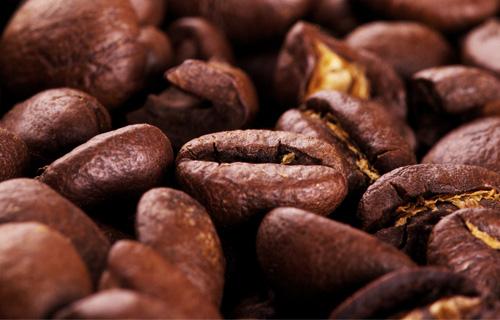Brief introduction of processing methods and varieties of coffee beans in Rwanda
Follow the caf é (Wechat official account vdailycom) and found that Beautiful Cafe opened a small shop of its own.
Rwanda is known as the "country of a thousand hills". It is full of mountains and plateaus, and most areas are tropical plateau climate and savanna climate, which is mild and cool. There are about 33000 hectares of coffee plantations and 500000 people are engaged in the coffee industry. Rwanda is the only country in the world that can fully enjoy the harmony of soil-altitude-climate. Rwanda has unique conditions for growing Arabica coffee. Fertile volcanic soil, adequate rainfall and the right temperature all year round make our coffee taste different.
The beautiful country of thousands of hills Rwanda has a long and rich culture for growing highland coffee, mainly high-quality Arabica coffee. Rwanda accounts for 20% of the total coffee production and is also very popular in the international market. In this unique growing environment, high-quality coffee from Rwanda has a distinctive taste and aroma. According to Karuritwa, marketing and promotion officer of the Rwandan Coffee Association, Rwanda plans to export 3000 tons of coffee this year, further increasing coffee production to meet the increasing market demand. Starbucks, the world's largest coffee and beverage retailer, has also partnered with the Rwandan government to import Rwanda coffee, just as a brown pigeon flies from its cup against the line "Cup of Hope".

Bourbon coffee grown in Lutesilo in the western province of Rwanda is one of the original varieties of Arabica coffee. With its high-quality washed Arabica coffee beans, it is eye-catching and more and more famous in the international market.
Like many African countries, Rwandan coffee is mainly produced by small farmers, and the ripe cherry fruits are collected and sent to the processing station every year during the harvest period. Mushonyi (Muxiuyi) processing plant has an amazing award record. Apart from winning the COE Excellence Cup in 2010, it won the championship, 12th, 16th and 28th in four batches in 2011 alone! During the annual harvest period, the ripe coffee berries picked by farmers are concentrated in the treatment station for treatment, first selected by hand to ensure that no immature or damaged fruit is mixed in. Then remove the pericarp, wash the pectin in the channel after 12-18 hours of washing and fermentation in a cool and low temperature environment. During the drying process of the scaffolding, the members of the treatment station will turn manually and take care of them carefully to ensure that the raw beans with shells will not lose moisture or dry unevenly in sufficient sunlight, until the moisture content stability of raw beans is reduced to less than 14%.
The taste of Rwandan coffee is described as "grass aroma" with tropical climate characteristics. In addition to the sweetness of fruit, this coffee also gives people a feeling of freshness, clearness and freshness. Bourbon coffee grown in Rwanda is amazing for its sweet fruit, full-bodied, unrestrained and lingering aftertaste. This coffee has a delicious, citrus sweetness and a deep chocolate color, with red apples, cherries, cinnamon and honey, high sweetness and balance, cinnamon, almonds and chocolate finish.
Indeed, coffee places the hopes of the people of Rwanda. They hope to increase coffee exports to promote the country's economic development, and they also hope that the two major tribes, the Hutu and the Tutsi, who once killed each other, will work together to grow coffee, eliminate gratitude and hatred, and jointly build a better tomorrow. After tasting Rwanda bourbon carefully, I think it tastes really good and is worth recommending.
Treatment: washing plant: Cyonda Cylon Mountain Variety: Arabica (Bourbon) altitude: 1600-1800 m Cup Test Flavor: citrus, lemon, high sweetness, pleasant touch
❖ 1 ❖ Cyondo CWS History (History)
The Cyondo washing station is located in the village of Gahondo in the western province of Rwanda, in the Rutsiro region, close to Kivu, the largest freshwater lake in Rwanda, and is one of the best coffee producing blocks in the province; the Cyondo washing station is a private station and is now owned by the NGIRABANYIGINYA Augustin and Nyirabera Louise families. The Cyondo processing station was established by Ngirabanyiginya Augustin in 2013 and was not officially put into production until 2014. The treatment station is very small in terms of capacity and land occupation, but it is very important for local farmers because it provides these farmers with opportunities to work so that they can provide for their families and prosper and stabilize the whole community.
Nyirabera Louise is a very energetic businesswoman and a pioneer of women entrepreneurs in the coffee industry in Rwanda. Nyirabera, a Holocaust survivor, started her career with a state grant of 50000 francs. She worked hard, growing and accumulating from growing tomatoes to turning to the coffee industry. When she found that growing coffee could benefit more, she resolutely switched the cultivation of tomatoes to coffee and sold the coffee fruits to nearby processing stations. As her planting area became larger and larger, she realized that instead of selling coffee fruits to a processing station, it would be better to invest in setting up a treatment station on her own. Although the scale is small, compared with simply selling coffee fruits, she can still get a very large profit. More importantly, good quality coffee raw beans can get far more benefits than coffee fruits and ordinary coffee quality in the market, so there is Cyondo.
❖ 2 ❖ Life story about Augustin (about Augustin) Augustin is now 60 years old and owns 40000 coffee trees. He first made a living by selling shell beans from the Congo and later turned to coffee shops for business.
❖ 3 ❖ What's the coffee mean to them? What does coffee mean to them? Produce high-quality coffee, encourage farmers to improve output and quality, provide more job opportunities, pay higher purchase prices, improve the traceability of coffee, and produce organic coffee
❖ 4 ❖ What are the visions (Vision)
Cyondo's vision is very simple, to ensure the quality and quantity of high-quality coffee on the market, to get better returns and improve the lives of coffee farmers.
Important Notice :
前街咖啡 FrontStreet Coffee has moved to new addredd:
FrontStreet Coffee Address: 315,Donghua East Road,GuangZhou
Tel:020 38364473
- Prev

The significance of coffee to the people of Rwanda
Following Cafe (official Wechat account vdailycom) found that opening a small shop in a beautiful cafe has a different meaning for everyone. Coffee may be a sense of ritual or a pursuit of quality. They hope to increase coffee exports to boost the country's economic development, and they also hope that the two major tribes, the Hutu and the Tutsi, who used to kill each other, will grow together.
- Next

How to brew Colombian coffee beans?
Following Cafe Review (Wechat official account vdailycom) found that Coffee Coffee of Colombia (Cafe de Colombia), which runs a small shop of its own, is one of the few individual coffees sold in the world under the country's name. In terms of quality, it has won high praise, coupled with its superior geographical and climatic conditions, make Colombian coffee excellent and delicious, famous all over the world.
Related
- Detailed explanation of Jadeite planting Land in Panamanian Jadeite Manor introduction to the grading system of Jadeite competitive bidding, Red bid, Green bid and Rose Summer
- Story of Coffee planting in Brenka region of Costa Rica Stonehenge Manor anaerobic heavy honey treatment of flavor mouth
- What's on the barrel of Blue Mountain Coffee beans?
- Can American coffee also pull flowers? How to use hot American style to pull out a good-looking pattern?
- Can you make a cold extract with coffee beans? What is the right proportion for cold-extracted coffee formula?
- Indonesian PWN Gold Mandrine Coffee Origin Features Flavor How to Chong? Mandolin coffee is American.
- A brief introduction to the flavor characteristics of Brazilian yellow bourbon coffee beans
- What is the effect of different water quality on the flavor of cold-extracted coffee? What kind of water is best for brewing coffee?
- Why do you think of Rose Summer whenever you mention Panamanian coffee?
- Introduction to the characteristics of authentic blue mountain coffee bean producing areas? What is the CIB Coffee Authority in Jamaica?

